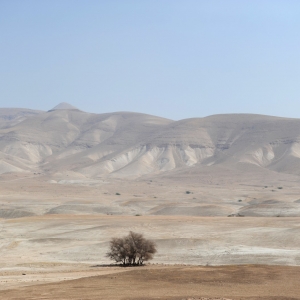The Stream, November 27, 2020: Hundreds of Thousands of Michiganders Are Behind On Their Water Bills
GLOBAL DAILY WATER NEWS
- New data finds that over 800,000 Michigan residents are at risk of water shut offs.
- First Nations in Ontario oppose a proposed mining network along the Attawapiskat River.
- India and Afghanistan sign an agreement to build a dam that could serve two million people.
- A new report calls for water infrastructure reform in the United States.
- The decade-long battle to open a mine in Alaska has failed.
Enbridge sues the state of Michigan after Gov. Gretchen Whitmer moves to shut down the controversial Line 5.
“The attempt to shut down Line 5 interferes with the comprehensive federal regulation of pipeline safety and burdens interstate and foreign commerce in clear violation of federal law and the U.S. Constitution.” – Enbridge officials. Enbridge, a Canadian oil transport giant, has filed a lawsuit against the state of Michigan in federal court over what it calls “illegal actions” by Gov. Gretchen Whitmer. The move comes less than two weeks after Whitmer announced that she would be shutting down Enbridge’s controversial Line 5 pipeline, which runs underneath Lake Michigan and Lake Huron in the Straits of Mackinac. The Detroit Free Press reports that Enbridge claims Whitmer’s actions are in violation of federal law and that the state of Michigan does not have the power to shut down the pipeline, since it is managed by federal agencies. A spokeswoman for Whitmer said in a statement that the governor’s administration stands by their decision and that the lawsuit “will put the Great Lakes and Michigan’s economy at grave risk.”
In context: Michigan Governor Whitmer Orders Enbridge Line 5 Shutdown, Citing Easement Violations
IN RECENT WATER NEWS
As Water Backs Up, an Asset in Michigan Becomes a Liability
Elaine Wolf-Baker remembers a childhood spent ice skating on the frozen pond in Sparks Foundation County Park, a landmark in Jackson County. She grew up here, amid the lake-dappled landscape of southern Michigan, and on clear winter days she would course up and down the park’s lagoons and connected streams for miles.
Wolf-Baker’s fond nostalgia contrasts with her current mood. Cracks — both literal and figurative — are appearing in Jackson County’s prized attraction and in its operation.
In Case You Missed It:
As Global Poverty Rises, USAID Plans for Covid-Altered World – Ensuring that water, sanitation, and hygiene are threaded throughout the agency’s programs is key, observers say.
First Nations in Ontario Oppose Proposed Mining Network
Water systems in the community of Anishinaabe have failed once again, forcing residents to evacuate their homes during the coronavirus pandemic. The Conversation reports that Neskantaga First Nation in Ontario has dealt with “infrastructural injustice” for decades, including a lack of running water in many homes, sewage backups and—more recently—the threat of mining pollution. Neskantaga, along with other First Nations along the Attawapiskat River, sit along what is known as the Ring of Fire, a proposed mining hub. Indigenous people living in the area have opposed a proposed network of new all-season roads to support extraction in the Ring of Fire, demanding a right to make decisions on their homeland.
TODAY’S TOP WATER STORIES, TOLD IN NUMBERS
800,000 MICHIGANDERS
An analysis of data from the Michigan Department of Health and Human Services (MDHHS) by the Natural Resources Defense Council (NRDC) and the People’s Water Board Coalition (PWBC) estimates that 800,000 Michiganders are behind on their water bills and could face water shutoffs. The analysis also found that the problem is rampant throughout the state in both urban, suburban and rural communities and affects areas represented by both Democrats and Republicans.
In context: Michigan Allocates $20 Million to Relieve Customer Water Debts
20 LAKH (2 MILLION)
Indian External Affairs Minister Subrahmanyam Jaishankar announced Tuesday that India and Afghanistan reached an agreement to build the Shahtoot dam, which could provide safe drinking water to 20 lakh, or 2 million, people in Afghanistan’s capital city. The agreement has been in the works for two years because of concerns from Pakistan that it will hinder their regular flow of water. The project is estimated to cost about $250 million, reports The Tribune.
ON THE RADAR
The U.S. PIRG Education Fund, Environment America and Frontier Group have released a joint report calling for massive infrastructure reform in the United States. The report specifically addresses water infrastructure reform, among other areas, and said that aging water infrastructure is a threat to public health and the environment. It includes several proposals for water reform, including calling on Congress to fund $6 billion annually towards wastewater infrastructure grants and replacing all lead service lines. The report’s authors also called for increased support for watershed and coastal restoration protections and the reestablishment of the Civilian Conservation Corps, which was first established in the 1930s to increase climate resiliency through work such as flood control.
The decade-long fight for the proposed Pebble Mine in Alaska has likely ended as the Army Corps of Engineers denied it a permit on Wednesday, the New York Times reports. The Army Corps’ Alaska District Commander, Col. Damon Delarosa, said the mine did not meet the standards of the Clean Water Act and would be “contrary to the public interest.” Opponents to the plan have long voiced concerns that the mine would cause irreversible damage to breeding grounds for salmon, while supporters have cited economic benefits to the project.
Jane is a Communications Associate for Circle of Blue. She writes The Stream and has covered domestic and international water issues for Circle of Blue. She is a recent graduate of Grand Valley State University, where she studied Multimedia Journalism and Women, Gender and Sexuality Studies. During her time at Grand Valley, she was the host of the Community Service Learning Center podcast Be the Change. Currently based in Grand Rapids, Michigan, Jane enjoys listening to music, reading and spending time outdoors.






Leave a Reply
Want to join the discussion?Feel free to contribute!